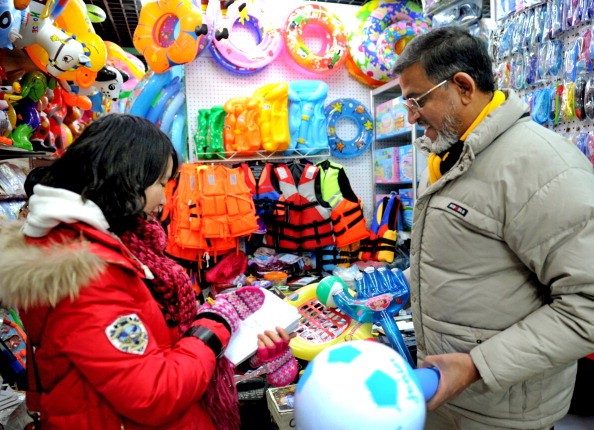The eastern city of Yiwu has made a name for itself in the national sphere as one of the China’s most multicultural cities. In Yiwu, visitors will find people of different cultures and ethnicities, thriving and coexisting peacefully, The Guardian reported.
The main reason why immigrants flock to Yiwu is simple: “anything can be had for a dollar or a yuan,” Mark Jacobs wrote in his book, “Yiwu, China: A Study of the World’s Largest Small Commodities Market.”
Aside from earning a reputation as a culturally diverse city, Yiwu is also known as the source of a variety of products. According to The Guardian, 70 percent of the Christmas decorations used around the world come from Yiwu.
“Today, retailers from anywhere in the world can’t survive without Yiwu products,” said Girdhar Jhanwar, the first Indian businessman in Yiwu.
“Anyone can come and set up a business in Yiwu, and get items to sell in countries all around the world. They don’t have to go anywhere else in China. Yiwu has become a one-stop shop,” Jhanwar told The Guardian.
The Chinese government has taken note of Yiwu’s profitability, putting up multilingual signs to attract more foreigners to settle in the city. Other steps to welcome foreigners include the publication of an English newspaper and the establishment of Yiwu’s first international school.
Due to the large numbers of Middle Eastern and North African traders in the city, the government is also mulling teaching Arabic in Yiwu’s public schools.
Efforts to make the foreign community feel included don’t stop there.
According to The Guardian, Yiwu officials also contact an annual meeting with representatives from the foreign community to discuss issues prevalent in the city. Yiwu’s foreign residents also exercise freedom of worship, with Muslims free to attend prayers at the local mosque. Even festivals such as Diwali and Eid are observed and celebrated by the Yiwu government.
Some foreigners, however, note that there is a growing racial tension in the city, with most of it directed towards Muslims.



























